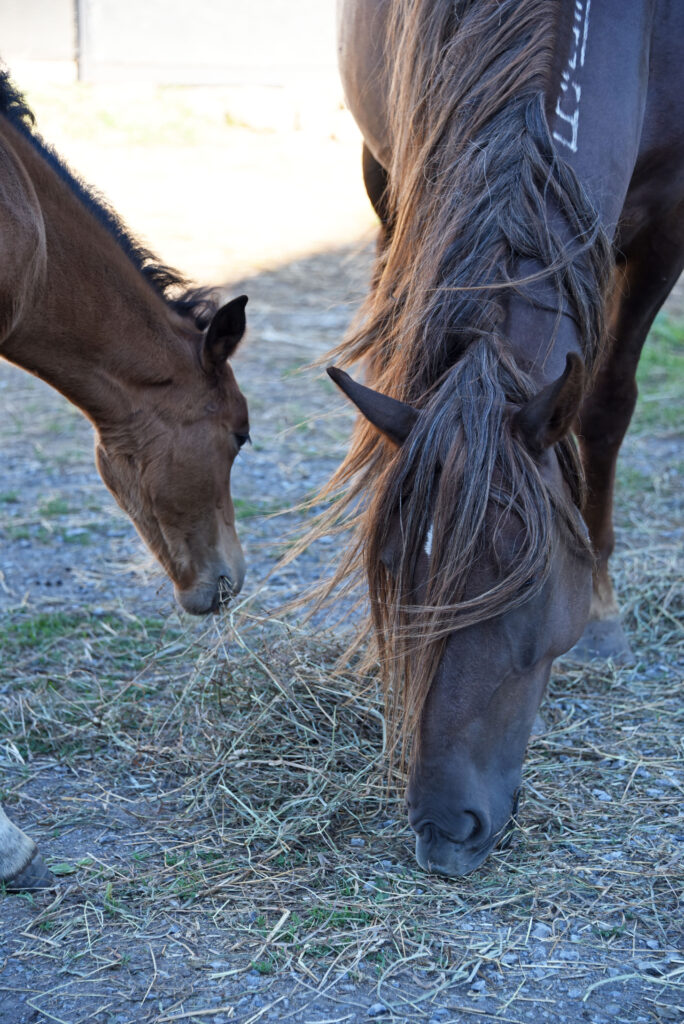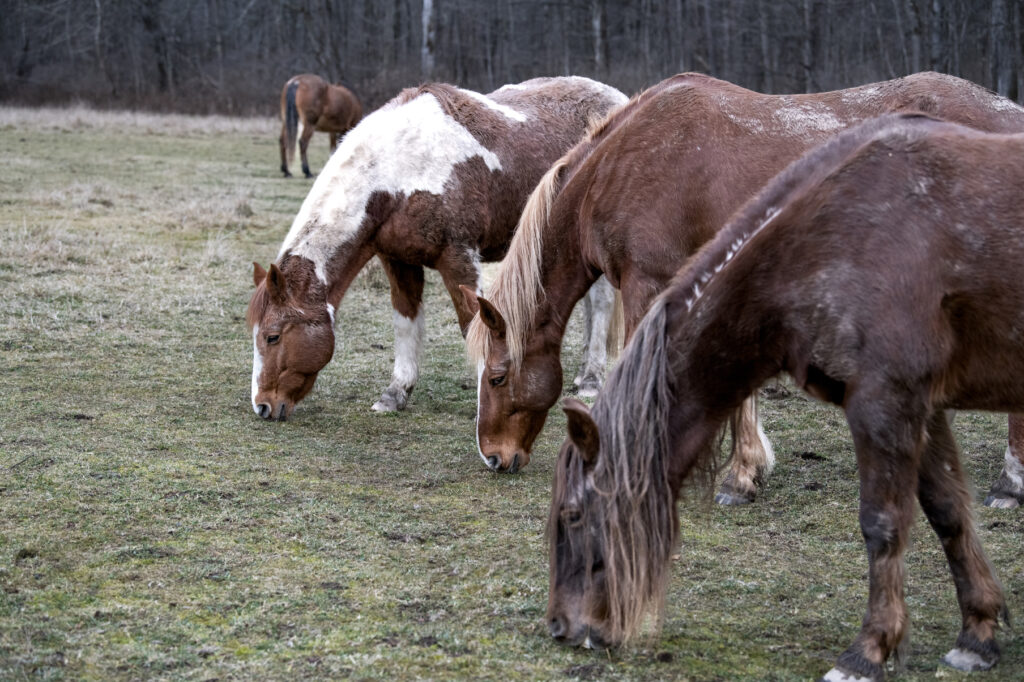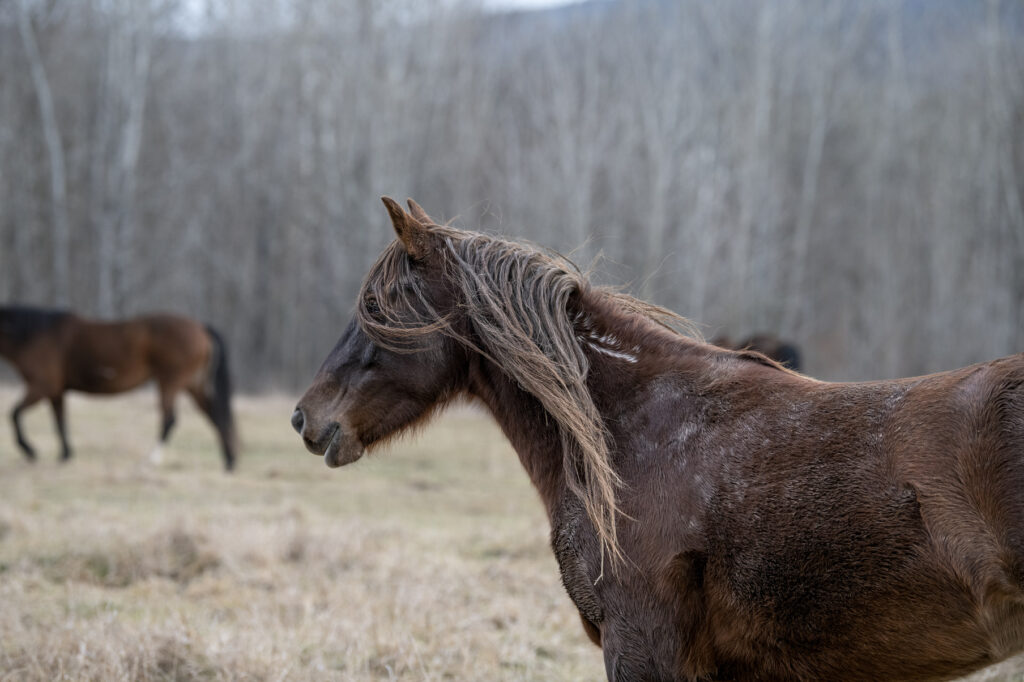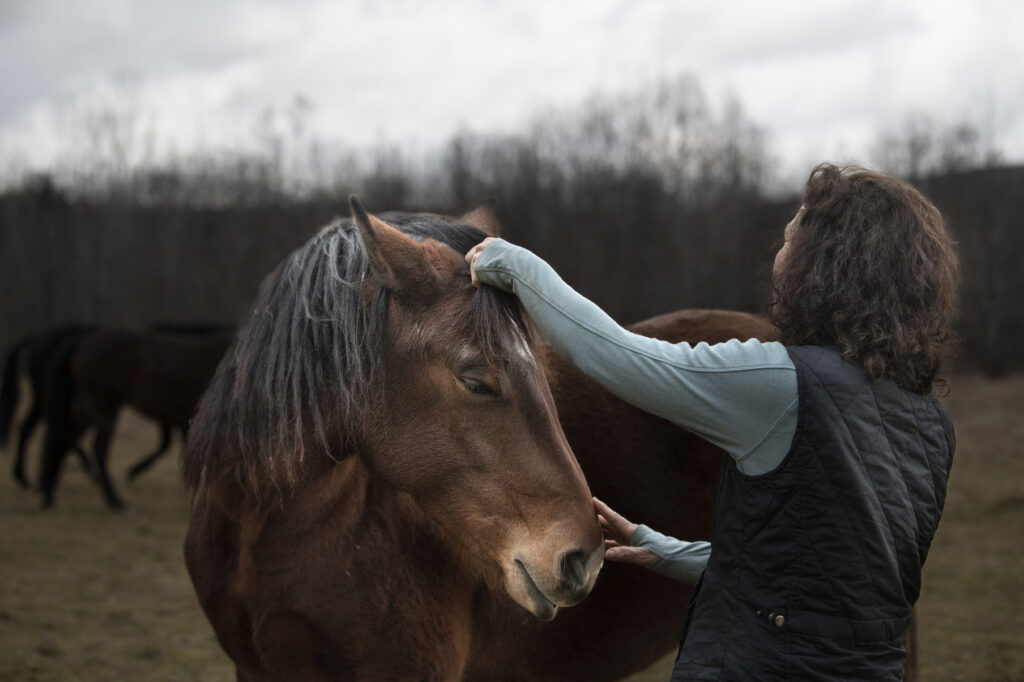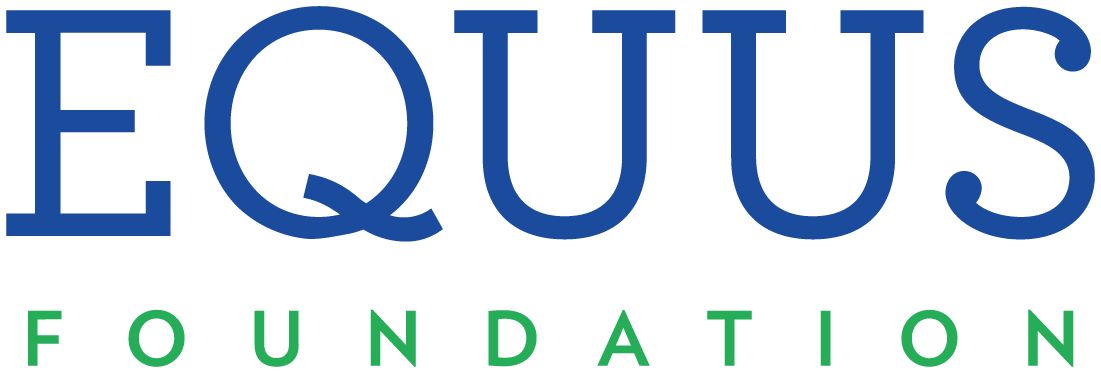Monday, December 5, 2022 WHEN CREDIBILITY MATTERS
WEST FULTON — Training a wild mustang isn’t all about the stick. It’s more about the carrot. That’s why it’s called gentling, according to trainer Mary DeBonis.
During an unseasonably warm morning in April, DeBonis carefully slid a bridle over mustang’s head. Wildfire, the mustang, stayed relatively still, patiently waiting until DeBonis adjusted the bridle. As soon as it was adjusted, Wildfire tried to give DeBonis a “mustang hug,” putting her head on DeBonis’ shoulder.
“She’s one of the most affectionate horses,” DeBonis said.
DeBonis has been working with Wildfire over the past few months for a competition called Extreme Mustang Makeover. It’s a national program open to only experienced trainers to gentle, halter break and saddle train a wild mustang.
When the average person thinks of a horse, they’re more likely to picture a thoroughbred. They have long legs and refined necks. They are typically used for racing and horse shows. Mustangs tend to be smaller, more compact and are used for hunting and general riding.
People tend to view thoroughbreds in the same way people view designer handbags, said DeBonis. Mustangs are viewed as the less showy breed. Although that’s not how DeBonis sees them.
Her expansive farm, called Mustang Valley Ranch, is nestled in between two rolling hills of West Fulton, a hamlet of Schoharie County. With its open fields, and wooded trails, the ranch is a haven for both DeBonis and the animals she adopts.
With no shortage of land, it’s a haven that DeBonis is growing, one rescue horse, goat, chicken, mule and kitten at a time.
But that’s not the case across most of the country.
According to National Geographic, there are around 75,000 wild horses and burros in the United States and the ecosystem can only support 27,000 of them. The Bureau of Land Management takes in around 45,000 surplus horses and burros every year. It takes about $50 million to care for them each year, according to National Geographic.
That’s where Extreme Mustang Makeover comes in.
Horse trainers who have proven they can work with mustangs have 100 days to train one of the wild mustangs that the BLM has in holding. By the end of the 100 days, there is a competition in which trainers prove their mustangs are gentled.
This means that the mustangs are comfortable with the trainer taking the tackle (the bridle, the saddle, the saddle pad, etc.) on and off. They should be comfortable walking with the trainer and with riding. There also has to be a sense of obvious trust between the trainer and horse. Trainers usually do light jumping work and something for a freestyle competition. For this section, the trainer and the mustang might do a routine in time with a song.
The competitions take place in several locations across the United States. DeBonis will be competing in June at the competition in West Springfield, Massachusetts.
Usually, the competitors will auction off the mustang they trained to a bidder at the competition to riders and stable owners. Since it began, Extreme Mustang Makeover has been able to sell 3,629 mustangs that would otherwise have been in the care of BLM.
But DeBonis already knows she’s going to be the highest bidder on Wildfire.
“I never want [her] to leave,” DeBonis said of working with Wildfire.
The two have only been working together for about a few months, but they are already attached.
Wildfire is affectionate and follows DeBonis around the training arena. While Wildfire might be new to feeling comfortable with humans, Debonis is far from new to horses.
“I’ve been riding since before I could walk,” DeBonis said. Growing up in Wisconsin and later on Long Island, it was her dream to be able to have horses right in her yard.

Mary DeBonis trains Wildfire at Mustang Valley Ranch in West Fulton, Schoharie County. (Indiana Nash/Daily Gazette)
On Long Island, she was eventually able to buy two acres of land, enough to have a barn and have a few horses. But her West Fulton home sits on 137 acres of fields and woods. It’s a picturesque view that could make anyone want to give up watching TV, DeBonis often jokes.
It also gives her the ability to run the John E. Quinn Foundation.
It’s a therapy organization working to help veterans with Posttraumatic Stress Disorder learn how to gentle a mustang. DeBonis started it two years ago in honor of her father who struggled with PTSD after he served in Korea and Vietnam.
Beyond that, DeBonis is an outsource chief financial officer who helps to build businesses and runs a general store/cafe, the Summit Country Grill and General Store in Summit, which she bought a little over a year ago. On top of that, DeBonis is a yoga instructor. She’s taught horse yoga (imagine moving into downward facing dog on top of a horse), although most of her classes have been of the horse-less variety.
But she’s put teaching on hold for now and is focused on working with Wildfire.
With the competition still a few weeks away, DeBonis is getting Wildfire to ease into riding using an approach she calls all natural horsemanship to train.
“It’s kind of like going on a date,” DeBonis said.
It’s based on the simple idea that the trainer needs to build up trust with the horse and pay careful attention to how the horse is acting/feeling.
“You really don’t want the horse to have a bad experience,” DeBonis said. Otherwise, it can make them skittish.
By building up trust, Wildfire is becoming more and more comfortable with DeBonis. That comfort makes all the difference in the arena when Wildfire and DeBonis are at the upcoming Extreme Mustang Makeover competition and beyond, as Wildfire becomes a permanent resident at Mustang Valley Ranch.
Join the Fight to Save Mustangs: Donate Today!
Mikayla’s story is one of many at Mustang Valley Sanctuary, where Mary and her team are dedicated to rescuing and gentling wild mustangs. Your support can help save more mustangs like Mikayla from the fate of a kill pen. By donating to Mustang Valley Sanctuary, you can help provide a safe and loving home for these magnificent creatures, giving them a chance to heal and thrive just like Mikayla has.




